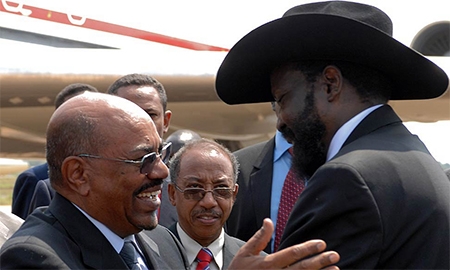While it is an unfortunate truth that the prevailing reason for Sudan's notoriety in international media over recent times has largely been a result of the protracted conflict that has long pockmarked the country and hindered its development, this is today a perception and a reality that Sudan not only realizes is begging for drastic change, but an issue towards which it is taking bold steps to resolve.
For many years it has been widely mooted that Sudan is in-fact a genuine hotbed of latent possibility. Indeed the World Bank would go as far to say that it is a "potential economic powerhouse." As one of the largest countries in Africa, Sudan sits at the significantly geostrategic junction between sub-Saharan Africa and the Middle East and has one of the continent's widest and richest ranges of resources - human, natural, social and economic - lying within its vast and extensive borders.
When the country´s prolonged civil war (defined by a deep schism of religion and culture between the Arab north and Christian south) finally came to an end in 2005 through the signing of a Comprehensive Peace Agreement, the door to truly positive development had finally been left ajar, and the discovery and subsequent export of oil during the last decade went about fuelling the unprecedented growth that the country had long anticipated.
However, despite experiencing such change in fortunes (after having suffered from the deprivation caused by war for over half a century), when Sudan agreed to the secession of South Sudan in 2011 the Muslim country made a truly gallant and munificent sacrifice in the interests of sustaining peace. As part of the independence deal, Sudan willingly relinquished over two thirds of its lucrative oil production in favour of its neighbours. Within a continent that has customarily been scarred by constant and continuing internal discord amongst its many troubled states, such a selfless act by Sudan towards helping achieve lasting harmony (becoming the only African country ever to voluntarily bequeath its borders) has rightly been hailed as a true milestone in the contemporary history of Africa.
Meanwhile, much to the widespread endorsement of the international community, a series of agreements was signed by the two countries in September last year to resolve the outstanding issues left over from the secession. And while there have been obstacles in implementing the pacts over the last twelve months, Sudanese President Omar al-Bashir and his southern counterpart Salva Kiir have recently met in Khartoum and Juba over the last six weeks, vowing to open a new era in the relations based on the understanding that the countries need each other's full support to prosper.
"We want to leave the problems of the past behind us and open a new page," said President Bashir, promising that that the talks would see the end of all rebel conflict that has continued in border-contested regions, and full implemention of economic and security agreements.
And now with the two countries working together to overcome their problems, the economic dividends of a permanent peace could be enormous. Sudan not only has immense areas of uncultivated arable land, but abundant gold and mineral resources capable of becoming major foreign exchange earners, while oil reserves are also still ripe for further exploitation.
Today, the austerity measures being employed by the Government as an upshot of their voluntary forfeit of oil has already seen the economy move firmly back on to the road to recovery, with the IMF predicting a 1.2% GDP growth in 2013. Furthermore, in the face of its previous heavy reliance on petroleum, the Government is now working to diversify its income sources, and pursue policies that aim to remove all obstacles faced by foreign investors, including a new investment law passed towards creating a more suitable atmosphere for attracting greater capital.
Above all, this nation of over 35 million people is exceptionally eager to project a more positive and accurate image of the genuinely beautiful yet wonderfully enigmatic place that it really is, and without doubt, Sudan is a country with a brighter new outlook. Having embraced its new found stability, this land of opportunity is fully extending its arms to the world of business, investment and tourism, hoping that its rapidly urbanising population can finally benefit from such long-touted potential, and a fully inclusive social and economic development that goes with it.

1 COMMENT
great news!